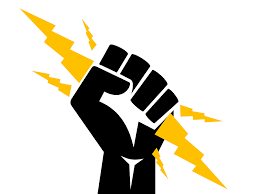Clarion Call
/By now we have probably all heard about the Intergovernmental Panel on Climate Change (IPCC) report published on the 6th of October this year. Its authors, scientists representing over 15 nations, present their findings pertaining to the likely consequences of global climate change should temperatures reach 2.0 or even just 1.5°C above pre-industrial levels. Through rigorous testing and analysis, the data largely confirm much of what we already knew: namely, that without drastic action, things really aren’t looking too good for us.
While many already recognize and accept that we possess a collective responsibility to do our share in taking steps to avoid these outcomes, certain sources claim that even our best efforts may not be enough. For example, the Climate Action Tracker anticipates that there is a whopping 97% chance that we will exceed the 2°C threshold. It goes without saying that this is cause for concern. The more drastic the climate change, the more extreme the weather conditions, regardless of location. While Nigeria is on the lower end in terms of CO2 emissions (measured in metric tonnes per capita), ranking in at 0.55 as of 2014 (China’s, for example, was 7.54; while the USA’s was 16.49), ever-increasing population and industrialization means we ought to keep a close eye on ensuring that these numbers don’t increase alongside regional development.
Furthermore, history tells us that large-scale changes necessarily involve the direct involvement of the masses. In the realm of environmental awareness, this means creating a significant enough social momentum in favor of sustainable practices and policies that policymakers have no reasonable choice but to enact legislation accordingly. After all, we know that a mere 100 companies have been responsible for 71 percent of industrial emissions since 1988—this is staggering. While this suggests that large businesses have a special responsibility to consider environmental safety in their dealings, such incentives are only strengthened by consumer demand. Given Nigeria’s notorious dependence on fossil fuels, we believe there’s no time like the present to make the switch to solar energy to help usher in a healthier, more efficient attitude toward the environment—and help keep our emissions low as our numbers increase.
In the meantime, be sure to check out Carbon Brief’s interactive tracker to get a detailed look at how various regions of the African continent (in addition to the rest of the world) may be affected by rising temperatures.

